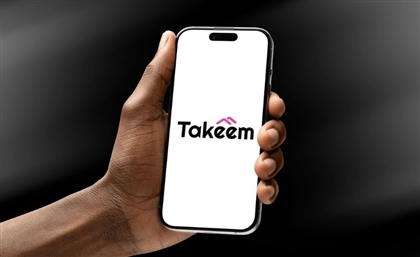Egyptian Competition Authority Calls Out Glovo and Delivery Hero For Monopoly
“The conduct in question may lead to a significant loss in jobs and investment, as it resulted in the exit of a current market player,” reads the ECA’s statement explaining their concerns.

Following their exit from Egyptian markets earlier in April, Spanish delivery startup Glovo and their German affiliate Delivery Hero received on May 22nd a Statement of Infringement from the Egyptian Competition Authority (ECA) for restricting competition on the on-demand delivery market in Egypt. Both parties have until June 22nd to communicate with ECA and provide the measures they intend to implement to comply with ECA’s decision.
According to the ECA, both parties contravened The Egyptian Competition Law “ECL” by colluding to restrict competition on the on-demand delivery market in Egypt preventing Egyptians from enjoying a whole range of services provided by Glovo.
Glovo entered the Egyptian market in 2018, three years following its founding in Barcelona, and announced the termination of its operations in Egypt on 30 April 2019. Delivery Hero is an online food delivery service based in Berlin, founded in 2011. The German startup operates in Egypt through 16% of Glovo, in addition to two directly owned subsidiaries which are the closest competitors to Glovo in the Egyptian on-demand delivery market – sparking the competition concerns.
ECA’s investigation that started on May 1st established that both parties participated in illegal anticompetitive conduct, in breach of ECL, to limit competition in the Egyptian market. The parties agreed on Glovo’s exit from the Egyptian market in order to cease competition with Delivery Hero’s own brands, eliminating any competition on the merits.
In conclusion, ECA’s Board of Directors assembled on May 21st and decided that both startups’ behavior infringed Article 6 (b) and (d) of ECL and that they shall be declared null and void. The parties shall take the necessary measures to cease and desist the anti-competitive agreements and to promptly restore the initial situation prior to the agreements; Glovo should not proceed with any liquidation proceeding and shall resume its operations in Egypt promptly.
According to the Egyptian Jurisprudence, the definition of an agreement “centers around the existence of a concurrence of wills between at least two parties, the form in which it is manifested being unimportant so long as it constitutes the faithful expression of the parties’ motives”. Delivery Hero and Glovo have engaged into two agreements within the meaning of the definition set forth by the Egyptian Economic Court.
In 2018, Delivery Hero entered into a Shareholders’ Agreement with Glovo by acquiring 16% of Glovo’s shares. The Shareholders’ Agreement between the parties confers Delivery Hero with certain corporate rights that allows Delivery Hero to access commercially sensitive information of its competitor operations in the Egyptian market and to influence Glovo’s strategic business decisions. Although the acquisition of minority shareholding in itself does not constitute a per se infringement to ECL, the exercise of the rights conferred to Delivery Hero in such a way as to lead to a Market Allocation Agreement contravenes Article 6 of ECL.
“The conduct in question may lead to a significant loss in jobs and investment, as it resulted in the exit of a current market player,” reads the ECA’s statement explaining their concerns. “Moreover, the behavior in question results in the exit of an efficient and innovative market player that was rapidly growing in the Egyptian market and offering innovative solutions to Egyptian consumers. Also, the ultimate effect of the arrangement will highly restrict the Egyptian consumer’s choice as it will limit the pool of platforms users can choose from.”
Furthermore, the ECA believes that Glovo’s exit would increase the market power of Delivery Hero’s own brands and eliminate effective competition. The significant concentration of market power might lead to anticompetitive practices that may affect various sides of the market.
Sources from Glovo Egypt declined to comment on this occasion.






















